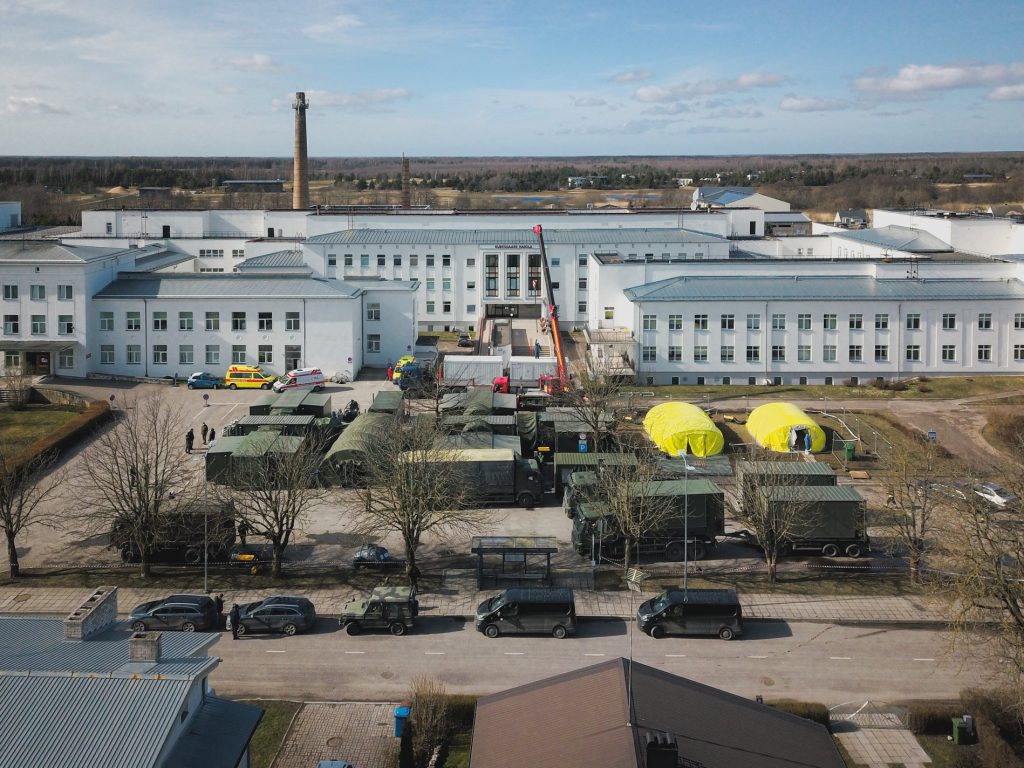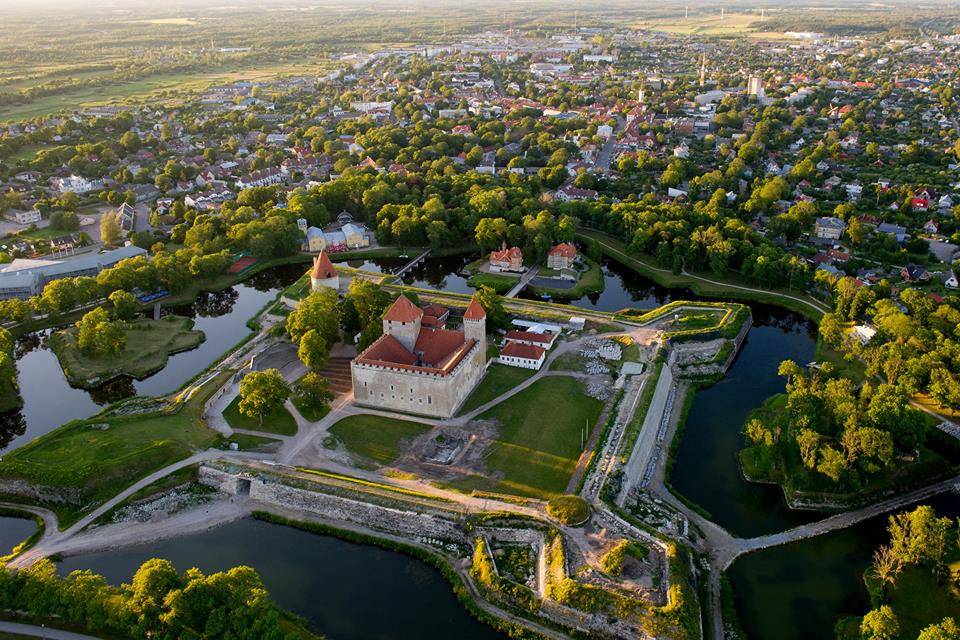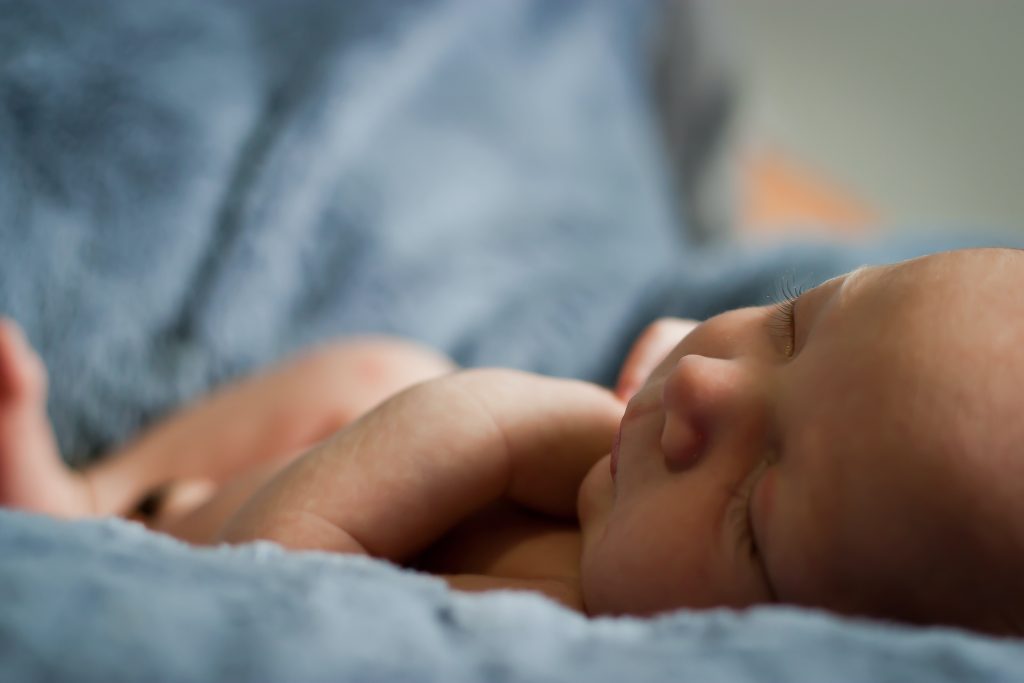Ben Jones, an Australian expat living in Kuressaare, Saaremaa, writes that forcing mothers to give birth alone due to the safety measures instituted by the coronavirus crisis is clashing with basic human instincts.
One of the greatest threats coronavirus brings to the wider global population is the mental stress triggered by sudden and drastic change and, with it, the risk of us quickly forgetting what’s important and what comes naturally.
The extreme departure from the status quo brought on by the coronavirus and resulting changes in everyday life are disturbing us in different ways, whether it be our eating habits, exercise regimes or financial discipline. It’s also natural that this new and extreme situation aggravates our defence mechanisms, and the resulting fear can impact the executions of our other important basic human instincts.
It’s much like the wider-scale balancing act Estonia and much of the rest of the world currently faces protecting populations against simultaneous health and economic crises – both are important, but often work against each other.
There are few better examples of this clash of human instincts than of expecting parents in Estonia, as they grapple with the heightened levels of stress and fear caused by the prospect of mothers giving birth without the bedside support of fathers.
Fear and stress clouding the focus
The Estonian Society of Midwives, the Estonian Society of Paediatricians, and the Estonian Society of Perinatology announced new coronavirus recommendations in a joint statement in late March that birthing partners and other family members would not be allowed at births to, “…prevent the spread of infection…” It’s an unthinkable prospect for first-time parents, who were already grappling with the stress coming with preparing to bring a child into the world for the first time.
Now, the natural instinct to fear the requirement to adapt to this coronavirus remedy threatens to consume new Estonian parents, making them counterproductive in executing their important natural parental instincts to selflessly nurture and love.
The balance between fear and love, and the intertwining nature of these functions, became reality for my partner and I when these birthing restrictions were introduced recently at our local hospital in Kuressaare. We are expecting the arrival of our first child in early June and experiencing the extreme challenge of putting aside our perfectly reasonable fearful reactions to the prospect of a solo birth.

Fear and the resulting stress attached to this is the greatest factor in clouding our focus on the lead up to the birth of our first child, at a time when we should be practicing our more useful parental instincts. We also infect each other with our fear and, most worryingly, it can impact our unborn baby, which also feels the consequences of the mother’s emotions.
Isolation a key to put the fear aside
Relinquishing fear and focusing on our more useful parental instincts is particularly challenging being isolated here in Saaremaa, living on the newly branded “corona island”. This type of negative categorisation and attached fearmongering on social media are combining to put some locals under stress, particularly those relying on a saturation of coronavirus information to understand how they should react and handle the situation.
It is unfortunate that these people under the most stress seldom realise they are offering a greater threat of infecting others with hysteria, rather than the virus itself. This source of panic and risk of its own infectious spread is a significant element of this coronavirus-era environment first-time Estonian parents need to adapt to, as are the pitfalls of our newly enforced routines.
Life in quarantine is adding intensity to the fear caused by the new unknowns of childbirth in Estonia, as heightened levels of stress triggered by outside influences are exacerbated by confinement, monotony and repetition. However, self-isolation may also be the key to offering struggling Estonian parents-to-be the best opportunities to put the fear aside and rediscover our more useful parental instincts.

I’m using uncertainty about our birthing situation as an opportunity to practice showing more gratitude, more love and more selflessness, for the benefit of a less stressful family dynamic.
I appreciate the quality of remote care offered by the midwives at Kuressaare Hospital and their ability to quickly adapt and reassure my partner that everything will be alright. I’m also thanking my lucky stars that I have a strong-willed partner. Her determination to be a good mother means her parental instincts to support, care and love rise to the surface more naturally during such a stressful time.
Tackling fear is part of becoming a parent
As the weeks go on, I find the pursuit of gratitude during testing times is offering me a renewed sense of purpose and meaning previously buried in quarantine humdrum. My improvement in knowing how and when to sperate my natural fears from my more useful parental instincts, also sees the challenge becoming less of a struggle, and more fulfilling.
But as isolation measures remain, and so too the threat of falling back into fear-driven mindsets, it occurs to me that despite what seems like an unprecedented situation, the intertwining nature of fear and parental instincts is nothing new for first-time parents. My renewed sense of purpose during quarantine is actually the parental instincts required to be a father kicking in, and the sense of fulfilment overcoming fears is a desire to accept responsibility.
While we are facing a seemingly daunting task, there is no reason this extreme departure from the status quo can’t still present first-time Estonian parents with opportunities to learn how to tap into our natural parenting instincts.
For me, it’s helped me understand that adapting and tackling fear is part of what becoming a parent for the first time is all about. And while it’s tough not to dwell on the thought of potentially missing the birth of my first-born child, it’s a challenge made easier knowing there are new mums and dads in Estonia who have already quickly adapted to tackle this painful scenario, successfully coming out the other side with happy and healthy babies.
For the latest developments in Estonia, follow our special blog on coronavirus.
Cover: A newborn baby. The image is illustrative. Photo by Carlo Navarro/Unsplash. The opinions in this article are those of the author.

